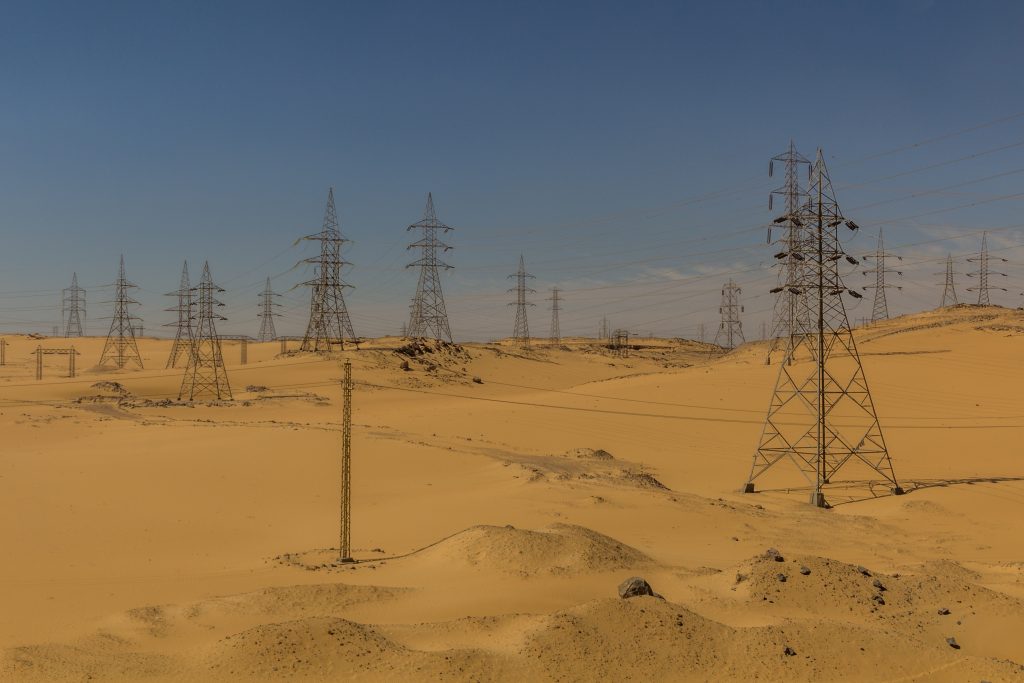Partner perspective: To make a lasting impact on carbon emissions, we must respect the developing world’s needs
Majid Jafar is the CEO of Crescent Petroleum and a member of the Atlantic Council’s International Advisory Board. Crescent Petroleum is a sponsor of the 2023 Atlantic Council Global Energy Forum. This essay is part of the Global Energy Agenda.
As COP28 kicks off in the United Arab Emirates, the divide between Western countries and the developing world over cutting global carbon emissions has never been deeper. As Western activists and policymakers focus on cutting oil and gas production and wrangle over whether to phase out or phase down the use of hydrocarbons, those in the developing world increasingly see their future coming down to reducing emissions at the cost of economic progress.
Bridging this divide will be critical for any real, lasting climate progress. The developing world is where the entire climate change battle will be won or lost; it is where all the net growth in emissions will come from, because it is where the most rapid economic and population growth is taking place. These nations must progress toward a lower-emissions pathway to development, but policymakers must disabuse themselves of the idea that progress can be accomplished by reducing access to energy supply or simply cutting consumption.

Policymakers must disabuse themselves of the idea that progress can be accomplished by reducing access to energy supply or simply cutting consumption.
Unintended consequences
Every nation has been grappling with the energy trilemma of affordability, availability, and sustainability as energy crises began in 2022. Every leg of this trilemma is critical to maintaining equilibrium and ensuring that energy security is met while emissions fall. But while European countries realized the importance of the trilemma when the energy crisis began, the developing world has faced the challenge for decades.
The West’s choices and policies have had significant unintended consequences on the developing world, which often bears the brunt of climate change impacts despite contributing minimally to the problem. Western policies that seek to dampen investment in oil and gas only darken the picture by raising energy costs and creating shortages for those who can least afford them.
European policymakers, for example, proudly heralded their ability to prevent energy shortages at home amid the energy crisis of 2022 by amassing liquefied natural gas (LNG) supplies from around the world. But the triumphalism ignored the impact of their deep pockets on energy costs and supply going to developing countries such as Pakistan, Bangladesh, and others. The result in these emerging markets was skyrocketing LNG costs, energy shortages, inflation, and ultimately greater use of dirtier fuels.
Adoption of natural gas with renewables by the developing world promises to be the most effective means of cutting carbon emissions quickly and affordably. Enabling the developing world to begin the downward march of carbon emissions now is crucial to this goal. Yet when investment in gas is starved to discourage its development and use, or the cost of capital is too high to enable the shift, the Global South is forced to resort to cheaper but higher-emitting fuels, namely coal.
License to operate
The oil and gas industry is also making tangible progress to be part of the climate solution. Most companies have pledged to reduce their carbon intensity and prevent methane leaks ahead of COP28, further reinforcing the reductions possible with natural gas and other cleaner sources of fuel. Substituting diesel and fuel oil with natural gas is one way the industry can decrease CO2 emissions. Additionally, process improvements to lower carbon intensity along with offsets can enable the industry to achieve carbon neutrality across operations.
Efforts like these can create a virtuous circle of emissions reductions while ensuring affordable and reliable energy supply for developing economies. In time, the energy mix will include natural gas and other clean fuels such as hydrogen, in addition to intermittent renewables and other forms of new energy.
The developing world is where the entire climate change battle will be won or lost.
Financing the change
Ultimately, change on the order required to reduce emissions is only possible with global cooperation. Lasting change requires genuine efforts from the West to respect and address the needs of developing nations by fulfilling climate funding commitments and providing finance as well as technical support and assistance.
One promising solution would be a new global institution, such as a World Carbon Bank, to channel technical assistance and climate aid to developing countries. Another powerful solution would be to establish a global system of carbon pricing to create economic incentives for reducing greenhouse gas emissions by incorporating the true cost of carbon into market decisions.
Clearly, the inherent distrust developing countries feel toward the West remains a major stumbling block to achieving global net-zero ambitions. It is therefore crucial to have a neutral space to host these conversations where all countries’ views will be welcomed and provided an equal platform.
COP is such a platform, and the UAE as the COP28 convener offers a model for action. As an early and major investor in all forms of energy, the UAE has the resources, both in terms of finance and low-cost solar energy supply, to advance the technologies of the future such as hydrogen. It plans to invest $54 billion in renewables over the next seven years as part of efforts to reach net-zero emissions by 2050.
The UAE’s geographical location also makes it a strategic meeting point between the Global South and North, serving as a hub for trade, finance, and diplomacy, with strong ties to both developed and developing nations.
The fight against climate change requires global solidarity, collaboration, and systematic thinking. Climate policies must be revised to reflect the needs and views of developing nations as well as those of the West. Undermining poorer countries’ growth in order to cut emissions is not a viable path to change; only by respecting those countries’ needs can we make a lasting impact. That is why we can all look forward to real and lasting action at COP28 in Dubai this year.
All essays
Related program

The Global Energy Center develops and promotes pragmatic and nonpartisan policy solutions designed to advance global energy security, enhance economic opportunity, and accelerate pathways to net-zero emissions.
Image: Electric pylons in the Egyptian desert (Credit: Matyas Rehak, Shutterstock)
